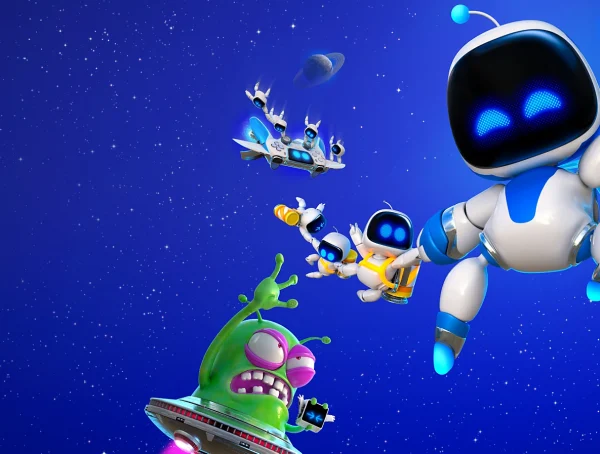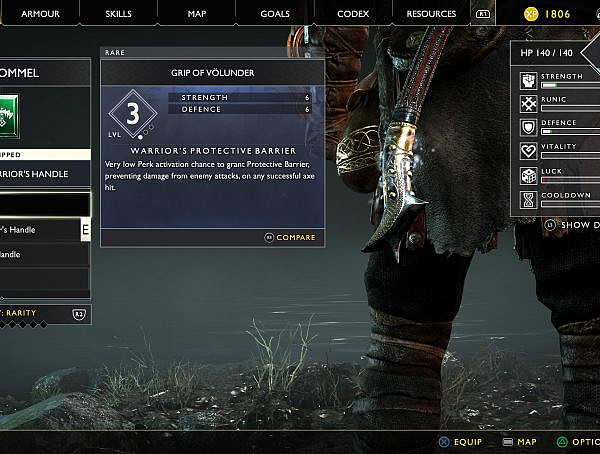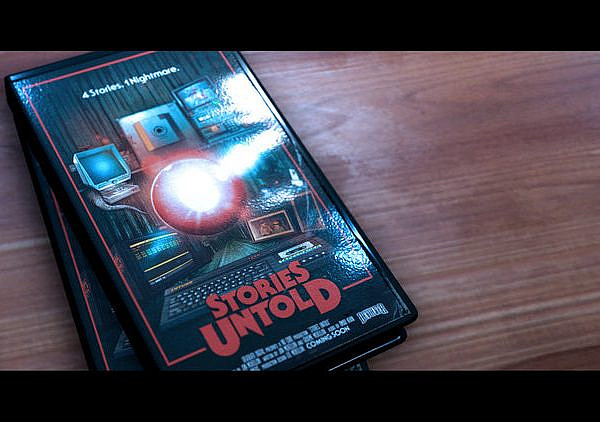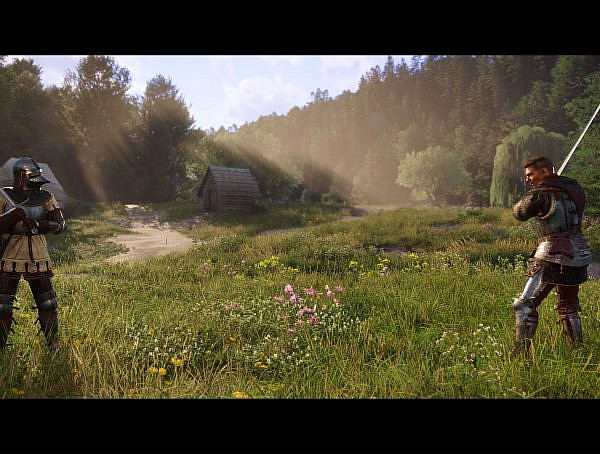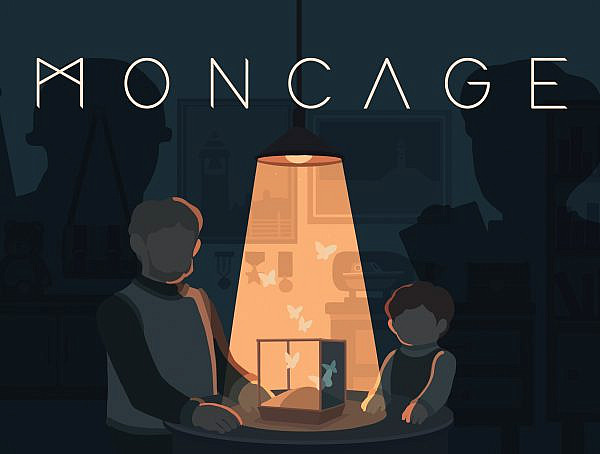For Honor is a match-based fighting game by Ubisoft with the weightiest melee combat I have encountered. Published in 2017, the game features a roster of characters loosely inspired by history, and an array of game modes and arenas to fight in. While the graphics and gameplay are largely excellent, the game’s future seems uncertain.
The best part of For Honor is the feeling of combat. Movement and attacks have inertia, smoothed out by well-flowing fighting animations. A satisfying crunch signals that a hit landed and running blends smoothly into dodge rolls. The playable characters, each with visually customizable weapons and armor, are split into alternate-history factions: Knights, Samurai, Vikings, and Wu Lin – the ancient Chinese. At the center of a visceral audio-visual representation of a bloody battlefield is an intuitive yet complex fighting system.
The combat is reminiscent of many fighting games. All 28 characters have their own move sets with varying timings for attacks, combos, and specials. These are countered with blocks, parries, and dodges, subverted by grappling or attack-canceling in turn. Attacks can come out of three separate directions, which provides complexity for mind games. You can also select a range of perks from a temporary speed boost to a devastating firebomb, unlocked over the course of a match. Anticipating your opponent’s moves is an important skill to develop. The combat is brutal and scratches an itch few melee games do.
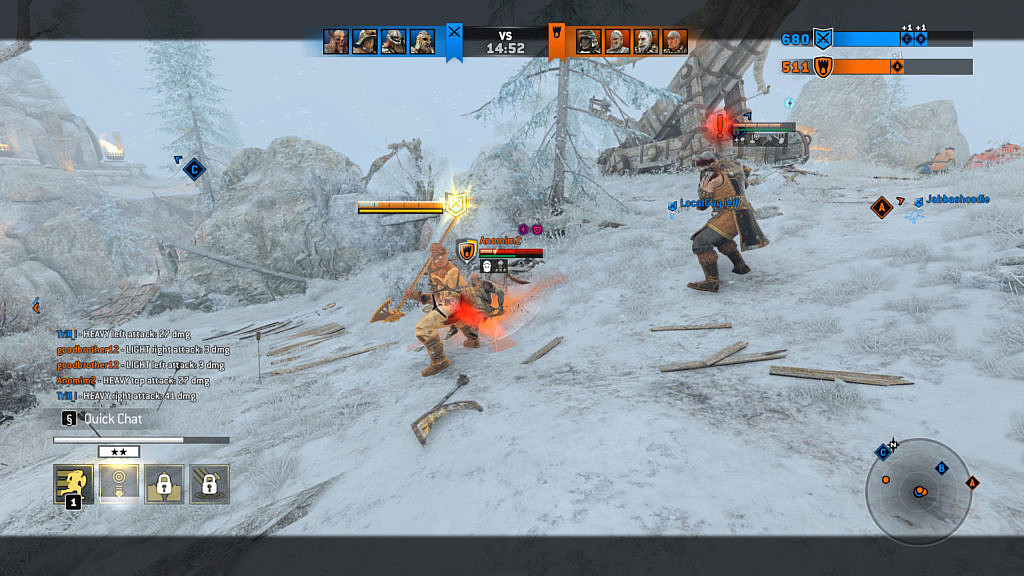
The revenge mechanic, granting an extra health bar for deflecting attacks, makes one-versus-many encounters less one-sided.
For Honor is hard to master. While duels are less complex than in some fighting games, 4v4 offers interesting, though often asymmetrical brawling experiences. Game modes include capture-the-flag, deathmatch, and even sieging a castle, mixing in non-player soldiers as cannon fodder. In practice, however, finding players for anything but the most popular capture point game mode is slow.
To be effective in combat, a player needs to know both theirs and the enemy heroes’ move set. This learning curve is somewhat steep, made worse by a small player base that does not seem to be growing. Veterans outnumber newcomers. While the objective-based game modes allow beginners to contribute, getting started is difficult.
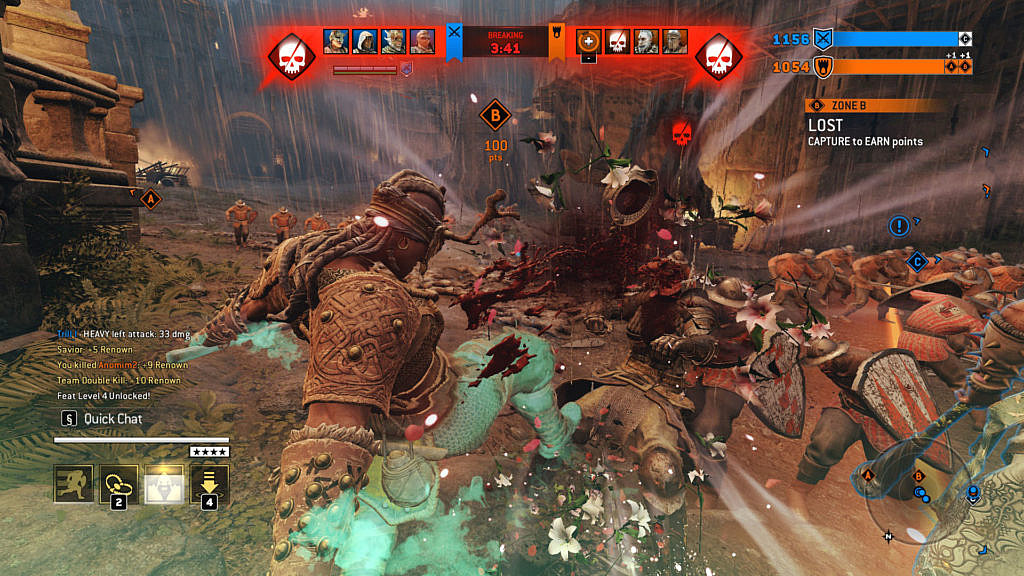
Defeating an enemy with a heavy attack permits a flashy execute animation, regenerating a portion of your health.
The tragedy of For Honor is a potentially great game hindered by technical issues. At launch, the game’s peer-to-peer system forewent game servers for a direct connection between players. In practice, its poor implementation resulted in huge loading times and frequent disconnections. Finishing a match was a roll of the dice. Dedicated servers and patches ironed out most issues, but clunky menus and slow loading times remain.
While I enjoy the game, my recommendation of it is mixed. When a game developed by a large studio has a bad start, it is scarcely expected to receive increased resources – which For Honor would have needed. If willing to put up with the game’s frustrations, there is an enjoyable experience at the core. I just wish the game were given the care it deserved.
Publisher: Ubisoft
Developer: Ubisoft Montreal
Platforms: Windows, PlayStation 4, Xbox One
Release Date: 14.2.2017
Genres: Action, fighting
PEGI: 18+
Screenshots by the author.
You might also like
More from Game Reviews
Stories Untold – An Experimental Psychological Horror Adventure
Stories Untold is a narrative-driven horror adventure game and a truly remarkable take on the genre. The four episode anthology …
Kingdom Come: Deliverance II – A Sequel Worthy of a Knight
KCD II delivers a living, breathing medieval roleplaying game to its players. #RPG, #kingdomcome, #openworld
Moncage Review: A Puzzle Game with Mind-Boggling Optical Illusions
Solving a huge #optical_illusion #puzzle in a tiny cube to discover a dark, #emotional story of trauma







